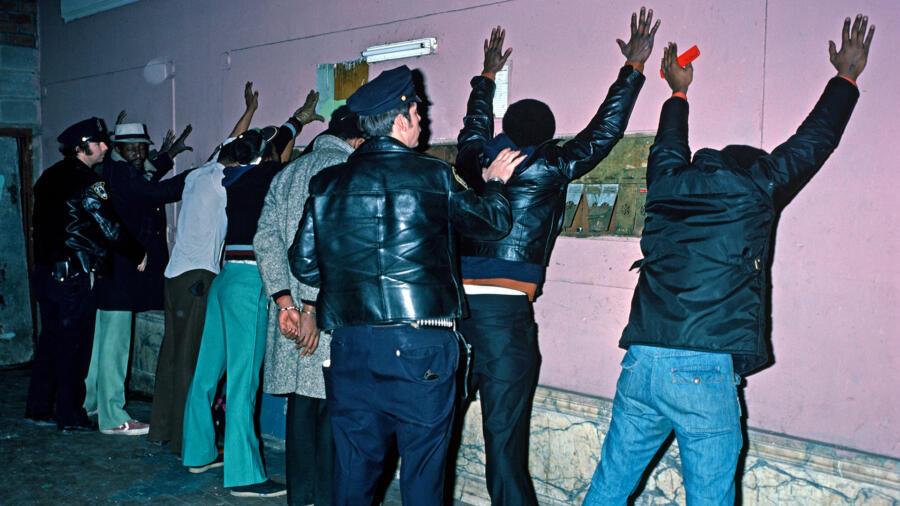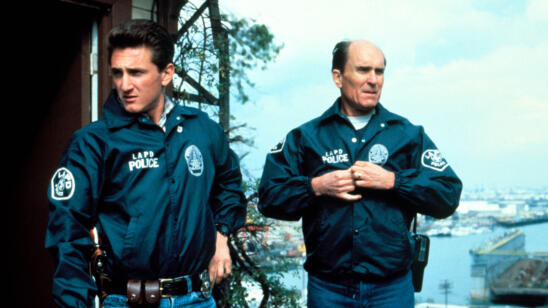Ralph Friedman served as a police officer during the 1970s and ’80s, during which time he walked the beat in the crime-addled 41st precinct of the South Bronx, nicknamed “Fort Apache.” Throughout his career he’s made more than 2,000 arrests, and when he retired in 1984 he was the most decorated detective in NYPD history. Here, Friedman shares some of the most memorable stories from his time on the force.
As told to A&E True Crime’s Adam Janos.
The first arrest I made turned out not to be an arrest at all.
It was my first day on the job. I walked out of the station house and saw a crowd gathered on 167th and Simpson. It was the end of the winter—April or so—and the weather just starting to change.
They had a portable boombox going, Spanish music. And as I make my way into the crowd I see that in the middle of it all was a naked man—100 percent naked, dancing.
I didn’t even know what I had, what the exact law was—I just knew you couldn’t be naked in the street. So I cuffed him and brought him in.
The crowd wasn’t happy I ended the show. They’d all been screaming, cheering him on.
Back at the station, the guys were all making fun of me, saying, “I think you took the strip search a little too far,” and “the pool is that way.”
We ‘psychoed’ him. He was an emotionally disturbed person (EDP), but back then we called them ‘psychos.’ That was the term before EDP was invented. It wasn’t an arrest, because he was mentally ill, but we wound up sending him to a nuthouse.
As my career progressed, I started going out looking for trouble. I’d feel lucky to find it. I made more than 100 off-duty arrests, too. A lot of arrests happened when I was out with girls.
Once I was out with my brother, who was also a cop, and two girls. The girl I was with, her name might’ve been Lisa. I saw a lot of girls back then.
Anyway, we took his car to see a movie: The Godfather. After, we were picking up the newspaper at a bodega and I see these three suspicious-looking guys hanging out around outside. I said, “They don’t look right,” so we told the girls to go upstairs. We were gonna watch them. We just had a feeling they were up to no good.
My brother and I hid behind some cars. It was cold out, but we watched them for almost 30 minutes. Then sure enough, they pull out a big knife and a rifle and started to go into the store. We ran in with the guns out and yelled, “Police, freeze!” They tried to run away, but we caught them.
Every time you make an arrest, you’re happy you got a bad guy off the street—but that was definitely the end of that date. We got stuck doing paperwork all night.
Sometimes you end up liking the people you arrest.
One time, we had a homicide—a guy had been killed in the street, stabbed with a kitchen knife. We discovered information that led us to a building, then eventually to an apartment.
There was a guy there in his early 40s. He’s crying. His wife is crying. They tell me that the other guy—the one in the street—had raped his wife. The man had come home and caught the rape in-progress. The men had a fight, and he wound up stabbing the guy.
It was a decent home. They were well-dressed. Not an Armani suit or anything, but well dressed for the neighborhood. The guy had a clean criminal record. The victim had a long rap sheet. The story just felt legit. Sometimes you just know. So we went to bat for him, and with our testimony he was cleared of the crime.
It was a hard job. I became very hard. I could look at a body torn up in pieces and it would have no effect on me. But now, after all these years of being retired, I’ll see a sad movie—like that Angelina Jolie movie Unbroken, about the soldier who went through all that torture—and I’ll tear up a little.
But back then, I loved making arrests: The adrenaline was like a drug. I was like a kid in a candy store. If someone’s raping an 85-year-old woman or burning an infant with cigarettes, taking them off the streets and throwing them in a cage felt great.
I took a lot of pleasure in it—a lot of pleasure.
Ralph Friedman is the author of Street Warrior: The True Story of the NYPD’s Most Decorated Detective and the Era That Created Him


